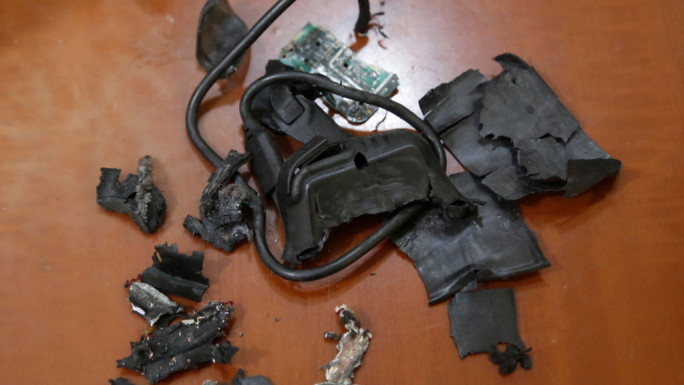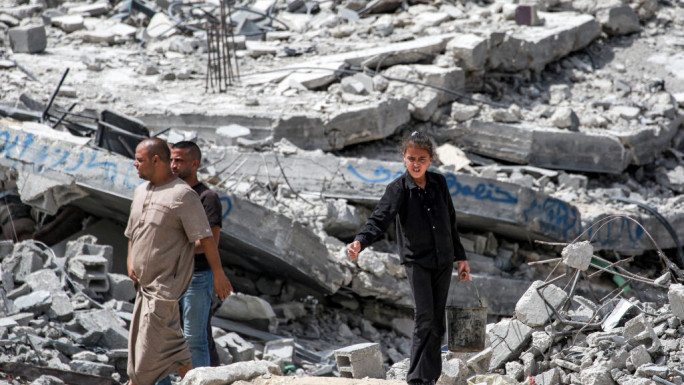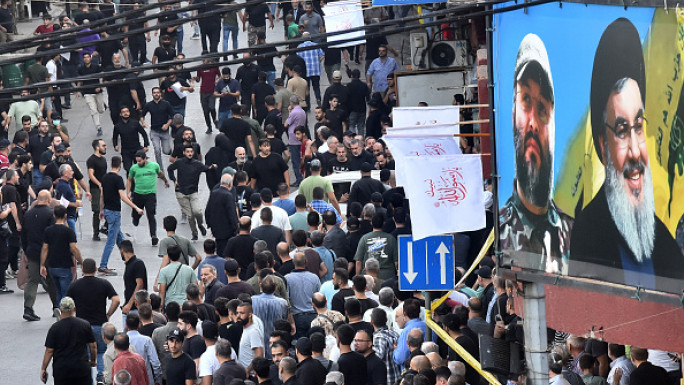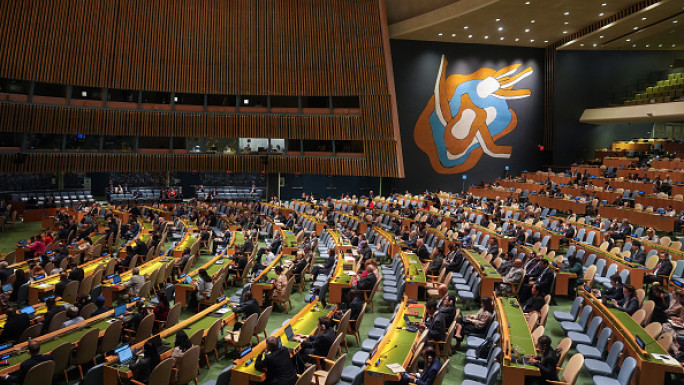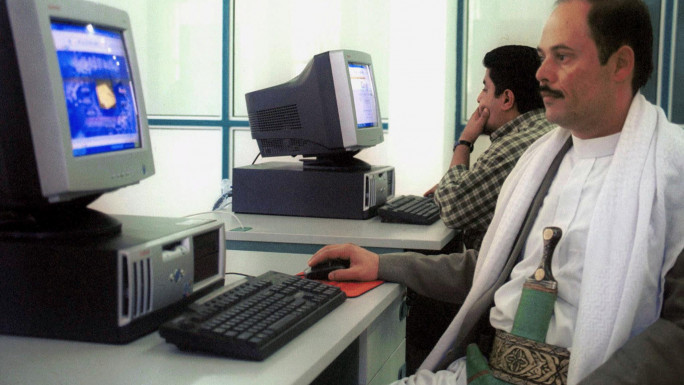
Travel blues will undermine trust in the Palestinian leadership
Travel blues will undermine trust in the Palestinian leadership
Comment: After waiting for hours under the unforgiving Jordan Valley sun, Palestinians will see the true face of their leaders who are whisked through VIP entrances, says Daoud Kuttab.
4 min read
The Palestinian government does little to lessen the difficulties of life under occupation [Anadolu]
Crowds at the bridge crossing from the Palestinian Occupied Territories into Jordan are nothing new. For 49 years Palestinians have endured terrible conditions and long waits attempting to travel to-and-from Jordan using the only available crossing for 2.3 million West Bankers. But the larger than average crowds - along with a new system allowing the rich to pay a fee to bypass the lines - has raised anger among the Palestinians to unprecedented levels.
Nazmi Muhana, the official in charge of the Palestinian border crossing, said there has been a 48 percent increase in numbers this summer. He said that the first 17 days of July, 149,000 Palestinians attempted to make it through the only crossing out of the Occupied Territories compared to 104,000 during the same period last year. This increase has turned the 90-minute trip from most West Bank cities to the Jordanian capital Amman into a 10 hour nightmare. The 42 degree heat in the Jordan Valley added to the difficult wait.
Feeling the heat
At the same time, the Palestinian government approved a special VIP service that allows those who can afford to pay a hefty $150 per-person fee to make it through the crossing in less than 30 minutes.
Hazem Kawasmi, a Palestinian activist, with the Karameh Movement Campaign, posted on his Facebook page photos of hundreds of Palestinians waiting in transit halls. Kawasmi demanded that the only crossing for Palestinians be opened around the clock. At present, the bridge is open from 8am to 10pm weekdays, and for three hours on Fridays and Saturdays. The publicity has brought quick results and on 21 July Prime Minister Rami Hamdallah made a surprise visit to the Jericho terminal and added his voice to those demanding that the bridge is open around the clock.
Palestinians have complained for years about travel restrictions. In addition to the overcrowded conditions, each Palestinian has to pay high fees and a hefty exit tax ($110 for East Jerusalemites and $40 for non-Jerusalem West Bank residents).
For a short time - at the turn of the century - Palestinian police were stationed at the Israeli-controlled terminal, which was open for 24 hours. When the Second Intifada began in October 2000, Israel kicked out the Palestinian police and thus a new Palestinian terminal in Jericho had to be established. Half of the fees collected at the bridge crossing are supposed to go to the Palestinian police even though they are no longer stationed at the terminal. The US sponsored roadmap for peace included a provision that Israel was expected to allow the Palestinian police back to the terminal but this was never implemented.
Walking the line
Palestinians endure long, monotonous waits at the Jericho terminal, taking a bus to the Israeli-controlled terminal only to board another bus to the Jordanian side after passport control.
The Palestinian prime mininister told the press that Palestinian travelers are not complaining about conditions in the air-conditioned Palestinian terminal, but that they understand that the bottle neck is because of Israeli delays. Hamdallah supported the call for an extension of the opening hours but noted that the problem is from the Israelis not from the Palestinian or Jordanian sides.
For most Palestinians the problem of the overcrowding at the bridge crossing is the latest manifestation of a much bigger problem - namely the lack of strong representation by the Palestinian government vis-à-vis the Israeli side. Palestinians are resigned to the fact that their negotiators are unable to bring about a dramatic end to the occupation because of the imbalance of power, and a lack of interest from the international community to force Israel to quit the Occupied Territories.
However, what Palestinians don't understand is why the Palestinian government doesn't do much more to ease some of the difficulties of life under occupation. After all, many say that the only reason for the continued existence of the Palestinian National Authority is the fact that they are supposed to champion the cause of the average Palestinian.
Experts predict that August will not only see record high temperatures in the Jordan Valley, but also a continued long delays and overcrowding at the border crossing. At present, short of a change by Israel of the bridge's opening hours, few expect any relief from this ordeal.
When Palestinians, waiting in line for hours, see their own leaders and wealthy Palestinians skip the queue because they can afford to pay the exorbitant VIP fee, they will get mad and express anger at a government whose term in office has long elapsed and whose conduct in their eyes doesn't invite the public to support them. In the long term, the continuation of this feeling will not bode well for the Palestinian leadership.
Nazmi Muhana, the official in charge of the Palestinian border crossing, said there has been a 48 percent increase in numbers this summer. He said that the first 17 days of July, 149,000 Palestinians attempted to make it through the only crossing out of the Occupied Territories compared to 104,000 during the same period last year. This increase has turned the 90-minute trip from most West Bank cities to the Jordanian capital Amman into a 10 hour nightmare. The 42 degree heat in the Jordan Valley added to the difficult wait.
Feeling the heat
At the same time, the Palestinian government approved a special VIP service that allows those who can afford to pay a hefty $150 per-person fee to make it through the crossing in less than 30 minutes.
Hazem Kawasmi, a Palestinian activist, with the Karameh Movement Campaign, posted on his Facebook page photos of hundreds of Palestinians waiting in transit halls. Kawasmi demanded that the only crossing for Palestinians be opened around the clock. At present, the bridge is open from 8am to 10pm weekdays, and for three hours on Fridays and Saturdays. The publicity has brought quick results and on 21 July Prime Minister Rami Hamdallah made a surprise visit to the Jericho terminal and added his voice to those demanding that the bridge is open around the clock.
Palestinians have complained for years about travel restrictions. In addition to the overcrowded conditions, each Palestinian has to pay high fees and a hefty exit tax ($110 for East Jerusalemites and $40 for non-Jerusalem West Bank residents).
 |
A special VIP service allows those who can afford to pay a hefty $150 per-person fee to make it through the crossing in less than 30 minutes. |  |
For a short time - at the turn of the century - Palestinian police were stationed at the Israeli-controlled terminal, which was open for 24 hours. When the Second Intifada began in October 2000, Israel kicked out the Palestinian police and thus a new Palestinian terminal in Jericho had to be established. Half of the fees collected at the bridge crossing are supposed to go to the Palestinian police even though they are no longer stationed at the terminal. The US sponsored roadmap for peace included a provision that Israel was expected to allow the Palestinian police back to the terminal but this was never implemented.
Walking the line
Palestinians endure long, monotonous waits at the Jericho terminal, taking a bus to the Israeli-controlled terminal only to board another bus to the Jordanian side after passport control.
The Palestinian prime mininister told the press that Palestinian travelers are not complaining about conditions in the air-conditioned Palestinian terminal, but that they understand that the bottle neck is because of Israeli delays. Hamdallah supported the call for an extension of the opening hours but noted that the problem is from the Israelis not from the Palestinian or Jordanian sides.
For most Palestinians the problem of the overcrowding at the bridge crossing is the latest manifestation of a much bigger problem - namely the lack of strong representation by the Palestinian government vis-à-vis the Israeli side. Palestinians are resigned to the fact that their negotiators are unable to bring about a dramatic end to the occupation because of the imbalance of power, and a lack of interest from the international community to force Israel to quit the Occupied Territories.
However, what Palestinians don't understand is why the Palestinian government doesn't do much more to ease some of the difficulties of life under occupation. After all, many say that the only reason for the continued existence of the Palestinian National Authority is the fact that they are supposed to champion the cause of the average Palestinian.
Experts predict that August will not only see record high temperatures in the Jordan Valley, but also a continued long delays and overcrowding at the border crossing. At present, short of a change by Israel of the bridge's opening hours, few expect any relief from this ordeal.
When Palestinians, waiting in line for hours, see their own leaders and wealthy Palestinians skip the queue because they can afford to pay the exorbitant VIP fee, they will get mad and express anger at a government whose term in office has long elapsed and whose conduct in their eyes doesn't invite the public to support them. In the long term, the continuation of this feeling will not bode well for the Palestinian leadership.
Daoud Kuttab is an award winning Palestinian journalist and former Ferris Professor of Journalism at Princeton University. Follow him on @daoudkuttab
Opinions expressed in this article remain those of the author and do not necessarily represent those of The New Arab, its editorial board or staff.

